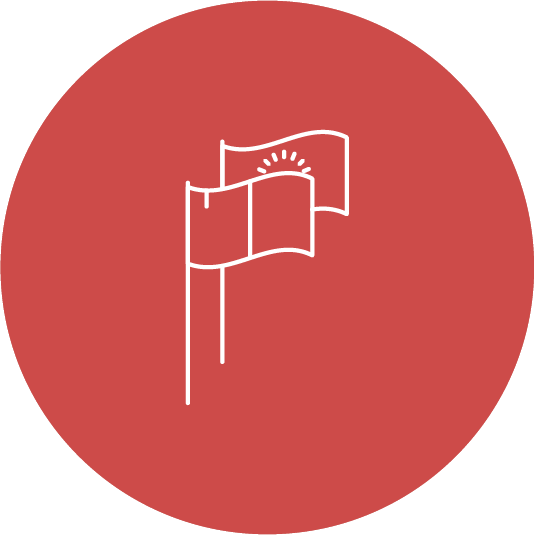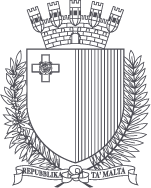Speech by the Hon. Carmelo Abela, Minister for Foreign Affairs and Trade Promotion of the Republic of Malta at the University of Haifa, Israel. Monday, 18th June 2018
Vice President Prof. Itzhaki, Prof. Kleinberger, President designate of the Israel-Malta Chamber of Commerce – Mr Ben-Tovim, dear students, dear friends.
When, on the 4th of May this year, I had the opportunity to welcome Professor Aharon Kleinberger, who came to visit our Ministry together with a team of 15 doctoral students from this auspicious University, I promised him I would visit Haifa sooner than he could imagine.
And here I am today, at this prestigious institution on the Eastern shore of the Mediterranean, addressing you on Malta’s “Mediterranean vocation”. This vocation can be understood as a consequence of Malta’s geopolitical position in the centre of the Mediterranean. Peace, stability, and prosperity in the Mediterranean represent Malta’s vital national interest and objective.
As a small island, bare of resources except for its enterprising people, and conscious of its strategic location, Malta has consistently advocated for dialogue, tolerance, cooperation, and the respect of democracy and the rule of law. In essence, effective multilateralism and the rules-based international order marries well with Malta’s fundamental national interest. This approach is not just a matter of consequence but is also rooted in a strong belief. The influence of being an island-nation with a millennial historical legacy distinguished by foreign rule and war has moulded Malta’s predisposition as a bridge-builder across the Mediterranean.
Besides being Mediterranean, Malta is also European. Hence, Malta’s Mediterranean vocation takes on, by nature, a Euro-Mediterranean dimension. It has always been Malta’s belief that European and Mediterranean security are firmly connected. Malta’s dominant Euro-Mediterranean foreign policy agenda is evident when one highlights the plethora of trans-Mediterranean initiatives that Malta has supported for decades.
Worth noting is Malta’s interest in having a Mediterranean component within the work of the Organisation for Security and Cooperation in Europe (better known as the OSCE). Malta’s efforts led to the inclusion of a Mediterranean Chapter in the 1975 Helsinki Final Act. The OSCE today has a Mediterranean Partnership for Cooperation with Algeria, Egypt, Israel, Jordan, Morocco, and Tunisia as a result of Malta’s insistence that there can be no security in Europe without security in the Mediterranean. More recently, on the 4th of June 2015, Malta proposed the appointment of a Special Representative for the Mediterranean to the OSCE Permanent Council.
Malta argued that events that have been unfolding in the Mediterranean, with direct repercussions for Europe and the OSCE area, have made it crystal-clear that the OSCE needs to play a stronger role in the Mediterranean if it is to holistically address its own security.
In the 1990s, Malta was an avid advocate for a Council or Association of the Mediterranean. At the 5+5 Western Mediterranean Forum Meeting held in Algiers in 1990, Malta proposed a framework of cooperation whereby, through non-rigid arrangements, one could achieve a setting for the development of a common understanding on issues such as intolerant fundamentalism, migration, and the root causes of tension. This proposal eventually evolved into the Barcelona Process and, later, into the Union for the Mediterranean.
The Union for the Mediterranean is an action-driven organisation that brings together all 28 countries of the European Union and 15 countries of the Southern and Eastern Mediterranean.
Its aim is that of enhancing regional cooperation and dialogue in the Euro-Mediterranean region, to collectively address three interrelated priorities: regional stability, regional human development, and regional integration.
Malta firmly believes that the regional organisations and initiatives in the Euro-Mediterranean area offer the appropriate framework to address threats and challenges, but also for the enhancement of dialogue and cooperation with a view to tap into the full potential of the Northern and Southern shores of the Mediterranean.
It is in this spirit that Malta actively participates in regional political initiatives such as the Union for the Mediterranean; the 5+5 Dialogue, the Anna Lindh Foundation; and the Mediterranean Group of EU Member States (known as the Med 7). These have distinct but complimentary mandates, as I shall outline.
The Union for the Mediterranean is an ideal platform for confidence-building and tangible, project-based cooperation among European and Mediterranean countries, particularly by bringing key actors in the region together at the same table. The Union for the Mediterranean is unique in so far that it is the only international setting within which the Israelis and the Palestinians enjoy the same status and can work together and cooperate normally, including on matters of shared interest.
Out of the 51 labelled projects by the Union for the Mediterranean, one has to mention with prominence the Eastern Mediterranean International School (EMIS). EMIS, labelled by the Union for the \Mediterranean in June 2016, is an international youth educational campus located in Hakfar Hayarok. With over 200 students coming from countries all over the world, EMIS educates towards values of respect, diversity, and global citizenship.
Malta fully supports the efforts undertaken by the Union for the Mediterranean to amplify its work on regional cooperation and integration. My country was active in this setting as from its inception stage, and I am pleased to recall that Malta’s current Ambassador to Israel, Cecilia Attard-Pirotta, was one of the first Deputy Secretary-Generals of the Union for the Mediterranean.
The Anna Lindh Foundation, as the Union for the Mediterranean’s civil society and intercultural platform, facilitates sharing congruency in inter-cultural dialogue between civil societies. Here I wish to note the landmark MED FORUM, held in Malta in October 2016, which was the largest youth and civil society gathering of its kind for the promotion of intercultural dialogue in the Euro-Mediterranean region. It provided an important platform for the Foundation’s future action and the launch of the “Young Mediterranean Voices” initiative offering a new space for constructive debate and intercultural dialogue among young people from both sides of the Mediterranean.
Malta continues to actively extend its support to the Anna Lindh Foundation. Earlier last month, my Ministry hosted the first Strategic Partners’ Forum meeting for the Young Mediterranean Voices. We certainly look forward to the amplification of this interface with the Anna Lindh Foundation.
Additionally, at the sub-regional level, Malta is a strong supporter of the 5+5 West Mediterranean Dialogue, which brings together the five Southern countries of the Western Mediterranean with the five Northern counterparts. It represents an informal, flexible, and practical partnership for dialogue towards peace, security, stability, and sustainable economic and social development. Malta had hosted the second 5+5 Heads of Government Summit back in 2012. On the 21st of January of this year, at the meeting of Foreign Ministers held in Algiers, Malta assumed the Northern co-presidency of the 5+5 for the next two years. Accordingly, Malta will host the next meeting of Foreign Ministers of the 5+5 in January 2019.
Malta’s Mediterranean vocation is also evident in its role and positioning within the European Union. Malta is a member of the MED 7, the group of seven southern Member States. The advancement of the Mediterranean political agenda within the European Union is the main goal of this group. This has been evident in the recent review of the European Neighbourhood Policy.
The long-term goal of the European Neighbourhood Policy remains the development of an area of shared stability, security, and prosperity with Europe’s neighbourhood. Membership in the European Union has added another dimension to Malta’s Mediterranean policy, and has concurrently augmented Malta’s capacity to set and advance the Mediterranean agenda at the European level. This was especially reflected during Malta’s first Presidency of the Council of the European Union in the first half of 2017, whereby the Mediterranean was a horizontal main priority.
A mention should also be made to the challenge of migration, human smuggling and trafficking to the European Union, but also the region as a whole. Malta is pleased that the principles of solidarity, partnership, and shared responsibility from the Valletta Summit, which was held in Malta in November 2015, will continue to guide the European union and its African partners’ response.
Malta was instrumental in hosting the Valletta Summit between the European Union and the African Union, entirely dedicated to discussing the challenges and opportunities of migration. The Malta Declaration on the external aspects of migration was adopted at the Malta Summit of European Heads of State and Government in February 2017.
Given its Mediterranean vocation as well as its strategic interests, the crises confronting a number of countries in the Mediterranean are of great concern to Malta. Of note is the situation in Libya.
Libya’s political transition towards a stable and functioning country through an integrated approach is a priority for us. Throughout the troubled and protracted aftermath of the 2011 revolution, Malta has consistently emphasised the importance of inclusiveness and Libyan ownership of a political process as the way forward.
Currently, Malta fully supports the efforts of the United Nations, which is seeking elections in Libya due to a political stasis. In this regard, Malta emphasises the adoption of a Constitution and an electoral legal framework before elections are held, also as outlined in the Paris Declaration of the 29th of May.
The situation in Syria remains a source of serious concern in terms of stability and peace in the Mediterranean and in the Middle East. Civil war in Syria has been the greatest source of instability for the Mediterranean in recent decades. Its consequences are to continue to be felt for years to come, on neighbouring countries and in regions beyond, which continue to host Syrian refugees.
The onset of a genuine political transition is imperative for a truly sustainable solution to the conflict in Syria, in line with UN Security Council resolution 2254. Malta deems that such a solution is also necessary to address the significant security concerns emanating from Syria, such as the proliferation of chemical weapons as well as terrorism. Syria is also facing the predicament of lost generations. The number of children and young people who know nothing else but war counts in the millions now.
Regarding the situation here, Malta remains fully committed to the resolution of the Israeli-Palestinian conflict on the basis of a two-State solution that meets the aspirations and security needs of the Israelis and Palestinians alike. In this regard, Malta believes that a political horizon towards the resolution of this conflict is urgently required, devoid of violence, where all parties partake in talks around the same table. I am also pleased to note that, tomorrow, I shall be overseeing the signing of two Memoranda of Understanding between Malta and Israel and the launch of the Malta-Israel Chamber of Commerce.
In this context, Malta considers its relationship with Israel as strategically and politically important for the continued amplification of cultural, commercial, economic, and people-to-people relations.
In conclusion, and with a look ahead, Malta’s “Mediterranean vocation” is the consistent pursuit of dialogue for peace, stability and prosperity in the Mediterranean. It represents the principal credential with which Malta is bidding for a non-permanent seat at the United Nations’ Security Council for 2023-2024.
Basing this bid on its reputation and credentials as a bridge-builder and a voice for peace in the Mediterranean and beyond, Malta, with its historical and natural vocation for peace, shall continue to serve as a voice for dialogue and cooperation in the Mediterranean, rooted in the firm belief that such a state of play in the Mediterranean is crucial for international peace and security.
I wish to take this opportunity to thank you again for your interest in Malta, and to thank the esteemed management of the University of Haifa for believing in Malta and its power to bring people together. I certainly look forward to work closer with this University to make this desire a reality.
Thank you.






